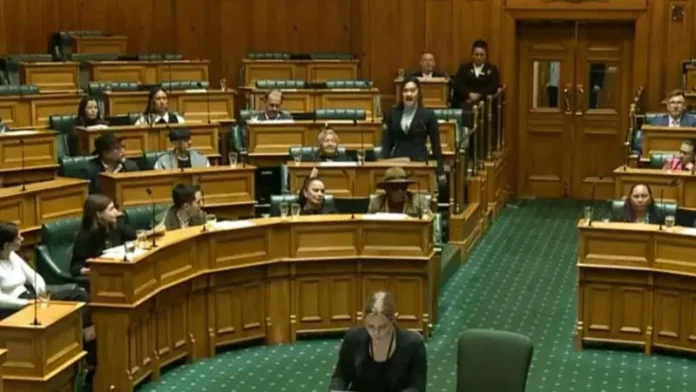Written by Lisa Murimi
A New Zealand parliamentary committee has recommended the suspension of three Māori MPs following a dramatic protest haka in Parliament last year.
The move has ignited debate over free expression, cultural identity, and the treatment of Indigenous politicians.
Te Pāti Māori MP Hana-Rawhiti Maipi-Clarke led the haka after being questioned about her party’s stance on the now-defeated Treaty Principles Bill, which sought to redefine the Treaty of Waitangi — New Zealand’s founding document.
The committee ruled the haka could have “intimidated” other lawmakers, recommending Maipi-Clarke be suspended for one week, while party co-leaders Rawiri Waititi and Debbie Ngarewa-Packer face 21-day bans.
Te Pāti Māori condemned the ruling, calling it “a warning shot to all of us to fall in line.”
The party said the proposed penalties are among the harshest ever considered by Parliament and reflect a broader pattern of silencing Indigenous resistance.
“When tangata whenua resist, colonial powers reach for the maximum penalty,” the party said, using the Māori phrase meaning “people of the land.”
Deputy Prime Minister Winston Peters, who is Māori, supported the suspensions, labelling the MPs “out-of-control” and accusing them of using “outrageous hakas” to flout parliamentary rules.
The Treaty Principles Bill, introduced by the right-wing ACT Party, was voted down 112 to 11 in April, following massive public opposition including marches and protests involving tens of thousands.
Parliament is expected to vote on the suspensions next Tuesday.



















